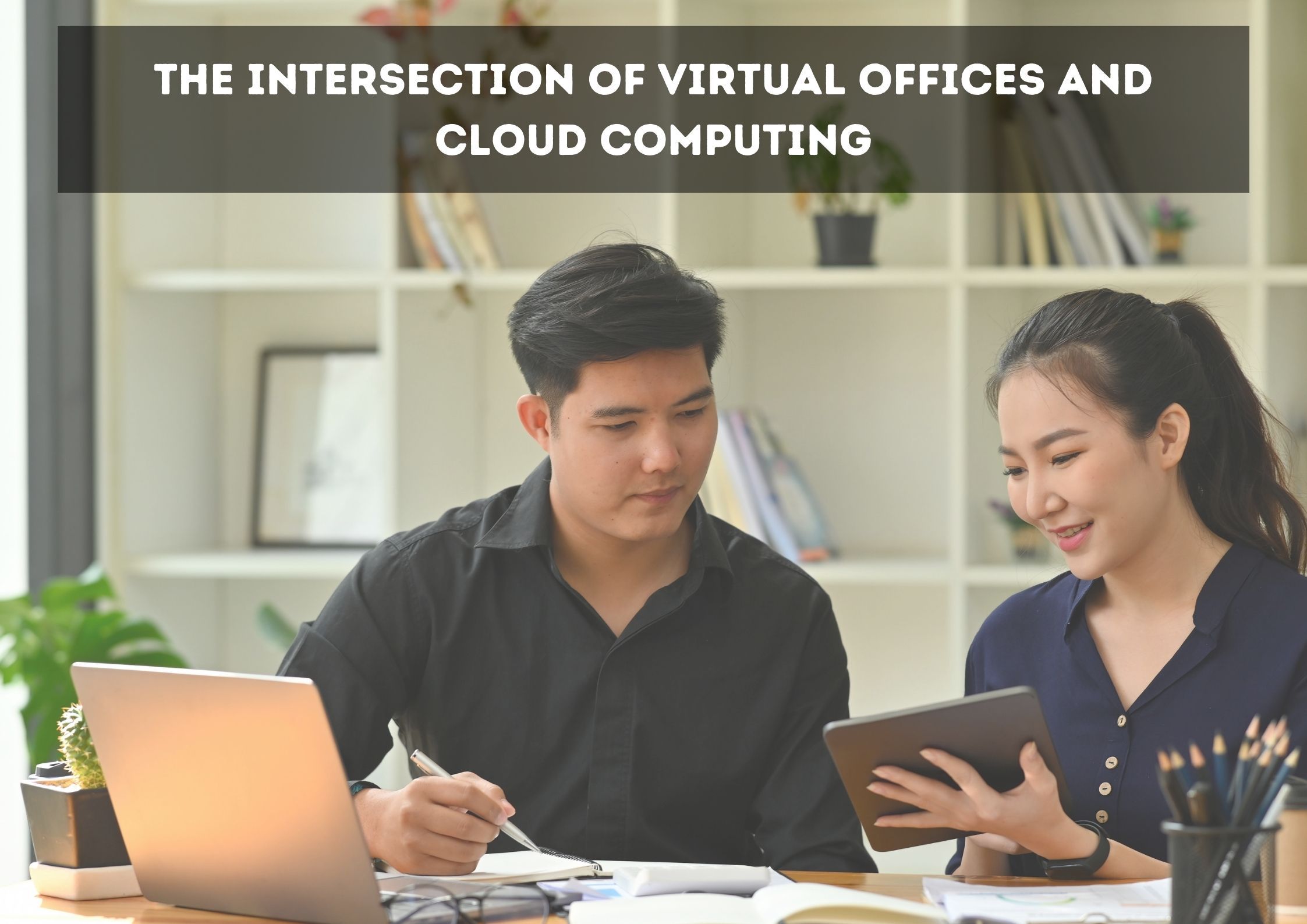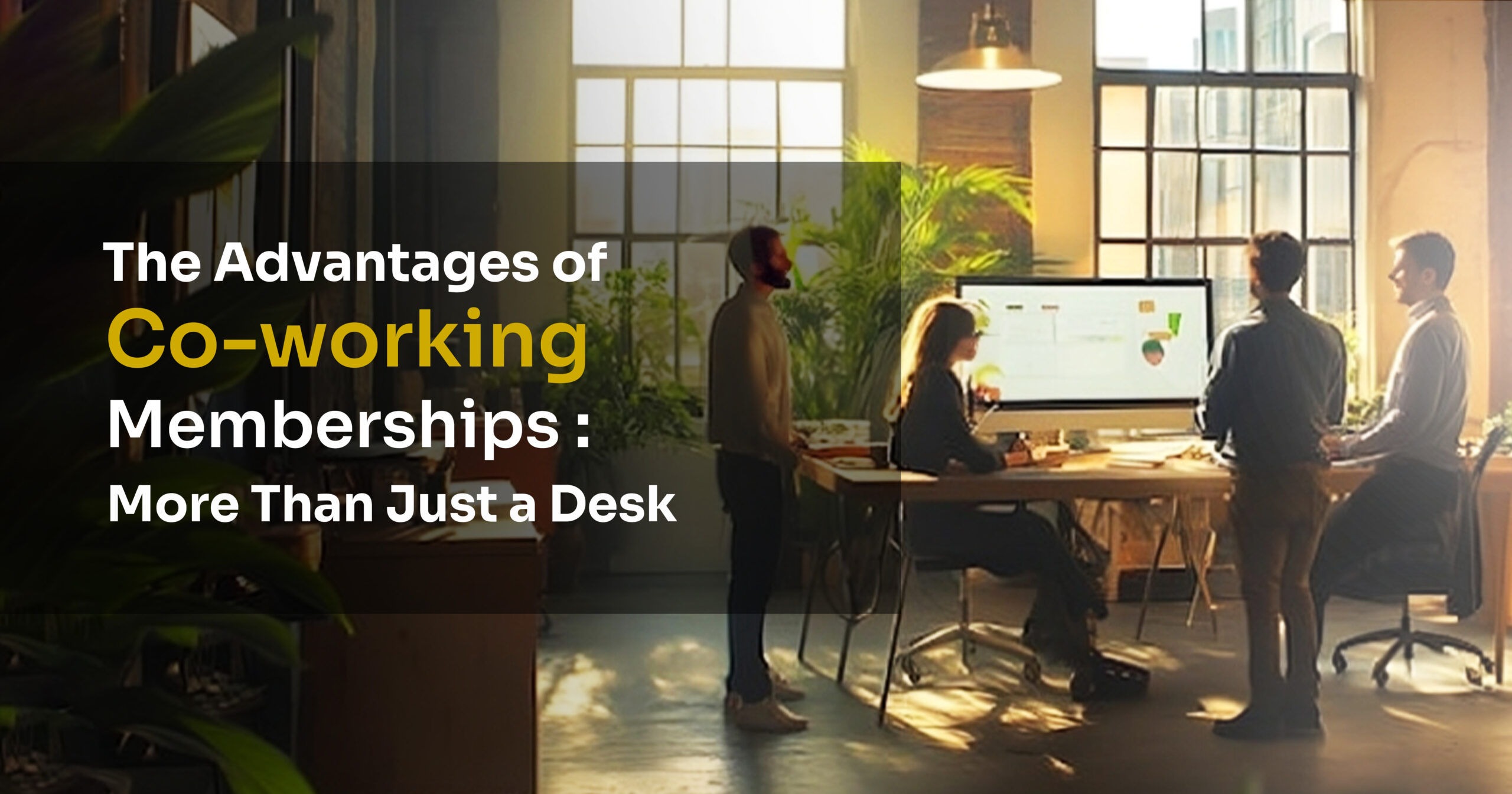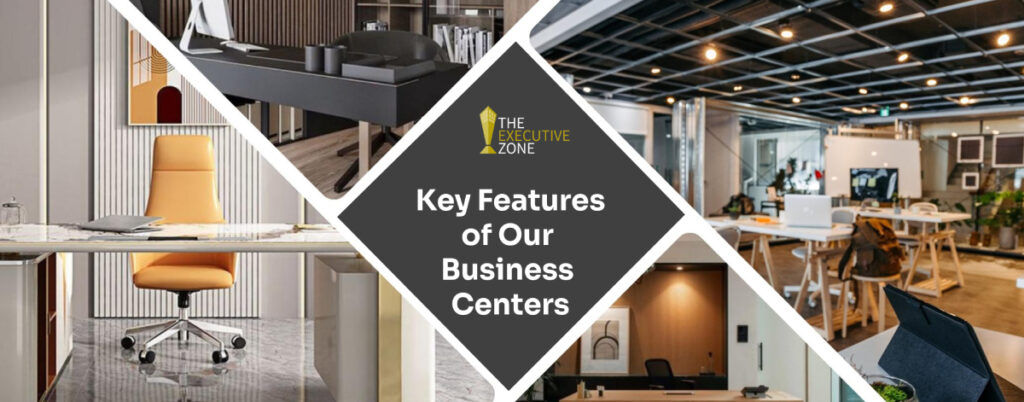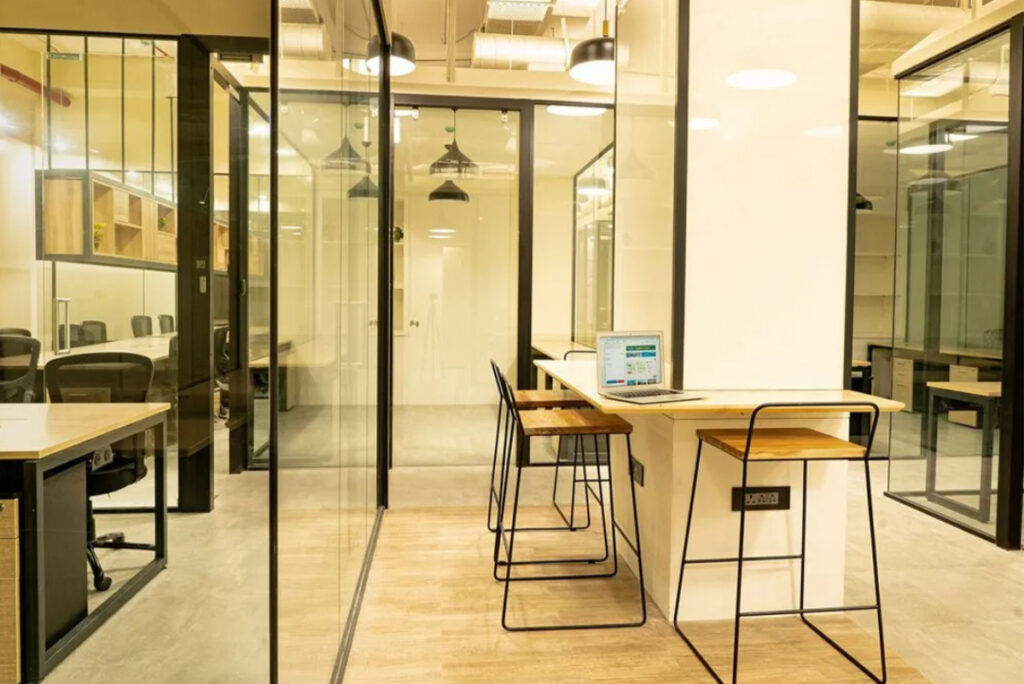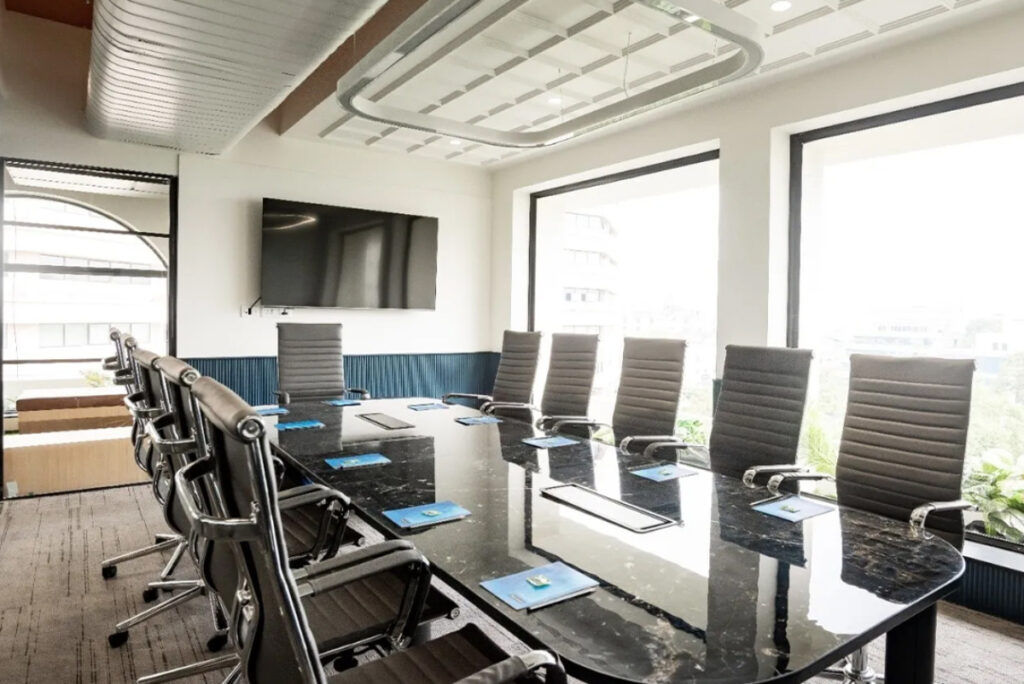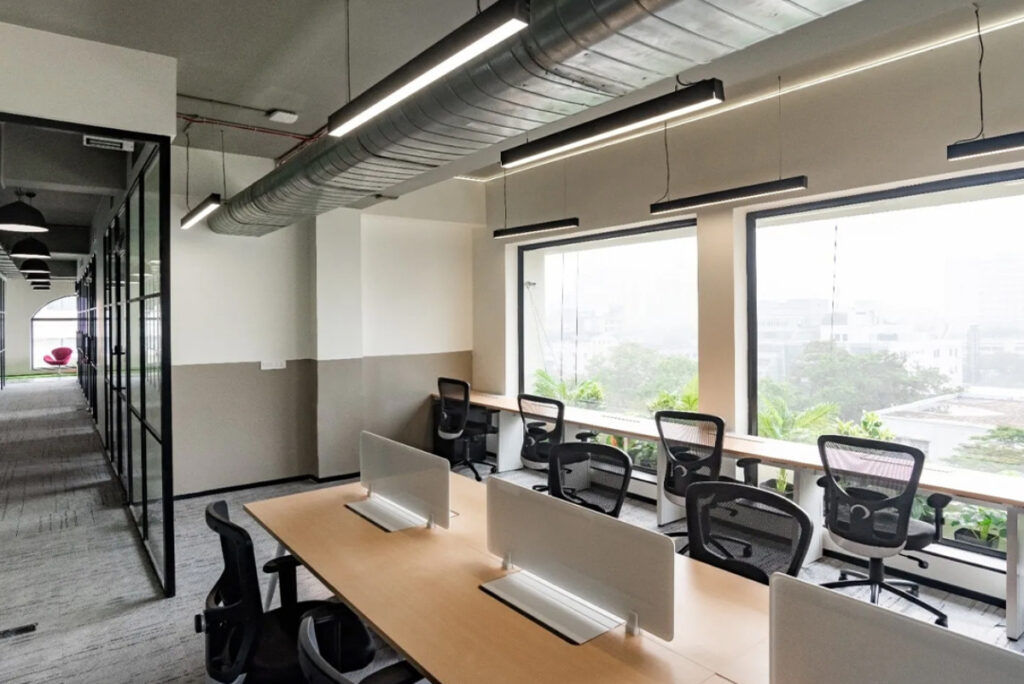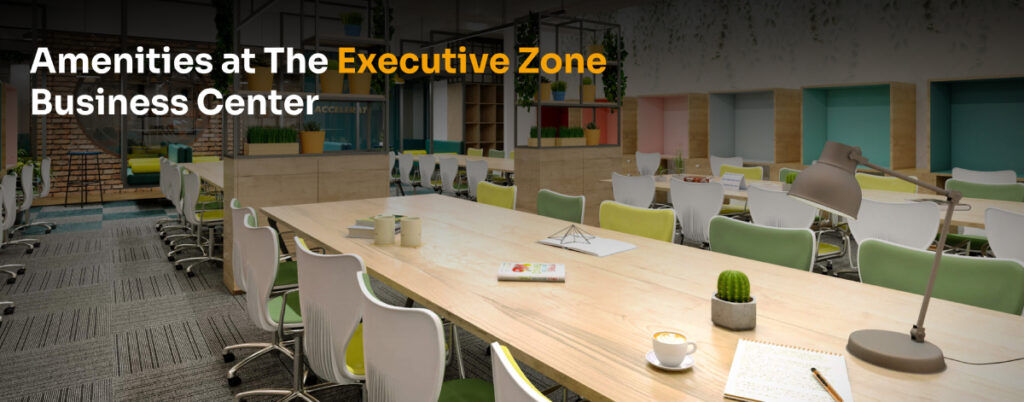The way a workspace is designed directly impacts productivity, mental well-being, and physical comfort. In coworking spaces, the demand for flexible and creative desk layouts has significantly increased, as people from diverse professional backgrounds require environments that suit different work styles. The perfect coworking desk layout is more than just arranging desks for functionality. It’s about fostering comfort, collaboration, and productivity while incorporating ergonomic principles.
Ergonomics: The Foundation of Comfort
At the heart of any desk layout that promotes maximum comfort is ergonomics. Ergonomic design isn’t a trend; it’s a science that focuses on creating a workspace where physical strain is minimized. A poorly designed workspace can cause back pain, neck discomfort, and repetitive strain injuries, all of which decrease productivity.
When setting up desks in a coworking space, it’s essential to offer ergonomic chairs with adjustable height and lumbar support. The desk height should allow a person to sit with their feet flat on the floor, knees at a 90-degree angle, and arms resting comfortably at the desk level, which helps maintain a neutral wrist position. Moreover, computer screens should be adjustable to eye level to prevent neck strain. Investing in these small ergonomic details can significantly impact the overall user experience.
Flexible Layouts for Different Work Styles
Coworking spaces attract a variety of professionals: freelancers, remote employees, entrepreneurs, and small teams. Their work styles range from collaborative group discussions to quiet, focused individual work. A well-designed coworking desk layout should accommodate these varied needs through flexible and dynamic workstations.
One popular approach is creating zones within the coworking area. For example, you can have designated areas for quiet work, team meetings, brainstorming sessions, and even casual lounges for informal discussions. Desks can be modular, allowing users to reconfigure them as needed. Mobile desks with wheels or collapsible tables can transform a quiet zone into a meeting area in minutes, ensuring the space adapts to the user, not the other way around.
Incorporating Standing Desks for Mobility
Standing desks are becoming more common in coworking spaces. While the traditional desk and chair setup may work for many, standing desks offer a change of pace, especially for individuals who prefer not to sit for long periods. Studies have shown that standing desks can improve posture, reduce back pain, and even boost productivity.
To create an ideal coworking desk layout, you should consider offering adjustable standing desks, which can be lowered or raised based on the individual’s preference. These desks provide users with the flexibility to alternate between sitting and standing throughout the day, preventing the fatigue and stiffness associated with remaining in one position for too long. The option to stand promotes mobility and offers an active approach to working, which can lead to increased energy and concentration levels.
Personal Space and Privacy Considerations
Coworking spaces thrive on collaboration, but professionals also need personal space to focus on individual tasks. When designing a coworking desk layout, it’s essential to find the balance between open, collaborative spaces and more private, quiet zones.
Desks should be spaced far enough apart to give each person a sense of ownership over their workspace. Privacy screens or desk dividers can help create personal zones within a larger shared area. This way, individuals working on confidential tasks or needing uninterrupted concentration can achieve the focus they require, while still benefiting from the collaborative atmosphere of the coworking environment.
Furthermore, it’s important to consider noise levels. While some people thrive in bustling environments, others need silence to concentrate. Adding soundproof booths or private office desk spaces in quieter sections of the coworking space ensures that everyone’s work style is catered to. Offering desk spaces near windows for natural light or in the back corner for those seeking more privacy can improve the overall comfort and satisfaction of users.
Commixing Green Elements
Coworking spaces are increasingly integrating biophilic design principles, which emphasize the connection between humans and nature. Research has shown that exposure to natural elements, such as plants and natural light, improves mood, reduces stress, and enhances cognitive function.
Including greenery in your coworking desk layout, such as potted plants or vertical gardens, can make the environment feel more welcoming and comfortable. Beyond their aesthetic appeal, plants improve air quality, reducing pollutants and increasing oxygen levels, which can prevent fatigue and boost concentration. Placing greenery on or around desks can also give the space a fresh, calming ambience, which is particularly helpful in high-pressure work environments.
Technology Integration for Seamless Workflows
In today’s digital age, tech-enabled workspaces are essential. The perfect coworking desk layout should include all necessary technological tools without creating clutter. Each desk should have easy access to power outlets, USB ports, and charging stations. Wireless charging stations are also becoming popular and add to the convenience factor. Additionally, ensuring strong and stable Wi-Fi connectivity throughout the space is paramount.
Some coworking spaces are integrating technology into the furniture itself, offering desks with built-in charging ports or even smart desks that adjust height automatically. These features add convenience and comfort, allowing workers to focus on their tasks without worrying about where to plug in their devices.
It’s also worth considering the implementation of booking systems for hot desks, meeting rooms, or workstations that enable workers to plan their day in advance. This adds an additional layer of efficiency to the coworking space, ensuring that resources are shared smoothly.
Lighting: The Unsung Hero of Desk Layouts
Lighting plays an enormous role in comfort and productivity but is often overlooked in workspace design. Poor lighting can cause eye strain, headaches, and fatigue. In contrast, well-lit environments boost focus and creativity.
When designing a coworking desk layout, maximize the use of natural light. Position desks near windows or in areas where daylight can enter, as exposure to natural light regulates circadian rhythms, which helps maintain energy throughout the day. For spaces that lack sufficient natural light, consider installing adjustable LED lighting at each desk.These lights should have dimming options and adjustable color temperatures, enabling workers to tailor the lighting to their preferences.
Beyond individual desks, the overall lighting design of the coworking space should incorporate ambient lighting that reduces glare, highlights communal areas, and provides a warm, inviting atmosphere.
Storage Solutions for a Clutter-Free Space
Desk clutter can lead to mental clutter, which in turn affects productivity. A coworking space designed for maximum comfort should incorporate smart storage solutions that keep personal and work items organized.
Lockable drawers or personal storage lockers give workers a sense of security for their belongings, especially in a shared environment. Cable management solutions, such as under-desk cable trays or clips, keep wires neatly arranged, reducing the chaotic appearance of cords. Desks with built-in storage or adjacent shelving units offer convenient ways to keep supplies close at hand without cluttering the workspace.
Maintaining a clutter-free environment also encourages a sense of calm and focus, enabling individuals to concentrate on their tasks without distractions.
Collaboration Areas Adjacent to Workstations
One of the key benefits of coworking spaces is the ability to collaborate and network with other professionals. However, the layout must balance collaborative spaces with individual work zones.
Integrating small, casual meeting spaces or break-out areas adjacent to workstations can facilitate spontaneous collaboration without disturbing those who are focusing. These spaces can include comfortable seating arrangements such as couches, high-top tables, or small booths where workers can discuss projects or ideas without booking formal meeting rooms. Such design elements encourage a more fluid work process, allowing creativity and discussion to thrive alongside concentrated work.
Including a Relaxation Zone
While most of the focus in desk layout design is on productivity and efficiency, relaxation is equally important for maintaining a healthy work-life balance. In coworking spaces, a well-thought-out desk layout should include areas for unwinding. Relaxation zones, contemplated with comfortable seating, bean bags, or lounge chairs, offer a space where members can take a break from their desks and recharge. This provides a mental reset, enabling workers to return to their tasks with renewed focus.
Strategically placing these relaxation zones within view of the working areas can also encourage workers to take breaks when necessary. While it’s easy to get lost in tasks, incorporating visible relaxation areas into the workspace reminds users of the importance of balancing work with rest.
Personalization and Aesthetic Appeal
While functionality is the core of any coworking desk layout, aesthetics should not be neglected. People are more productive in environments they find visually pleasing. Allowing a degree of personalization at coworking desks—such as space for personal items, small decorations, or custom screensavers—helps workers feel more connected to their workspace.
The aesthetic appeal of the coworking space itself also matters. Thoughtful color schemes, modern furnishings, and design elements that reflect the brand identity of the coworking space can improve the overall experience. Desks should not only be practical but also stylish, making the space feel like more than just a temporary office but a welcoming and creative environment.
In conclusion, designing the perfect coworking desk layout for maximum comfort goes beyond arranging furniture. It requires a holistic approach that integrates ergonomics, flexibility, personal space, technology, lighting, and aesthetics. A coworking space that can offer these elements will provide a comfortable, productive environment where individuals and teams can thrive, and where collaboration, creativity, and innovation are naturally supported.


